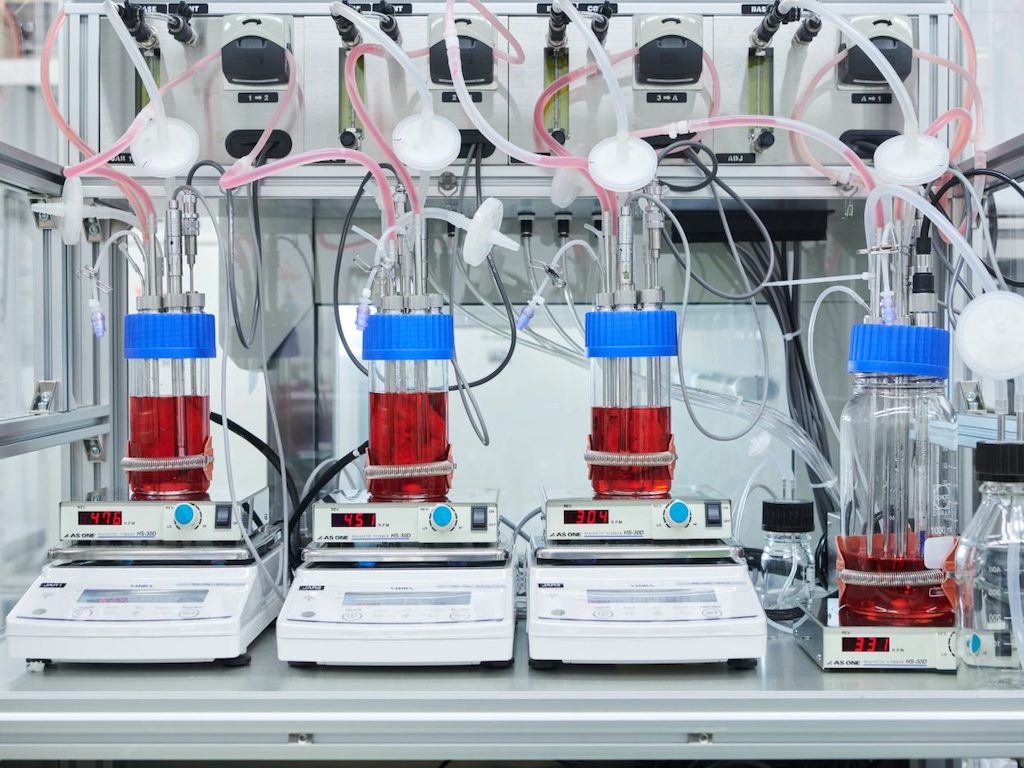Japan’s IntegriCulture Raises US$7.4M, Largest Series A For Asia Alt Protein Sector
3 Mins Read
Japanese food tech IntegriCulture Inc. has just completed its Series A funding with ¥800 million (US$7.4 million). The round was led by Beyond Next Ventures, NH Foods and AgFunder, and marks the largest Series A raised by the cultivated food startup industry and the largest publicly disclosed by any alternative protein company in the region. IntegriCulture plans to use the capital to push forward cell-based meat development and the company’s first commercial-scale bioreactor.
Tokyo-based food tech startup’s US$7.4 million Series A round was led by Japanese VC Beyond Next Ventures, agri-food tech investor AgFunder, Japanese food manufacturing conglomerate NH Foods. Other participating investors include Tokyo’s Real Tech Fund, San Francisco-based VU Venture Partners and CEO of asset management firm Caygan Capital, Naruhisa Nakagawa.
The latest capital takes the startup’s total funding to US$10.2 million.
IntegriCulture says that it will use the amount to fund further research and development into cultivated meats and will help the company build its first commercial-scale bioreactor this year. With the bioreactor constructed, the startup aims to launch its first publicly available cultivated product by as soon as next year, potentially making it the first in the world to do so.
Read: First commercial cultivated food may happen in Asia, report says
Founded in 2015 by Dr. Yuki Hanyu, IntegriCulture’s first cultivated meat product, which debuted in a tasting, was lab-grown foie gras. Hanyu believes that as an animal protein that already fetches a high price in the market, it is not too ambitious to launch a lab-grown, slaughter-free and cruelty-free foie gras next year, while the majority of cultivated food techs continue to battle the challenge of lowering costs.
With this in mind, Hanyu said in a statement that he hopes to make “2021 the ‘Year One’ of democratised cellular agriculture”.
In early May, IntegriCutlure launched two cell-based infrastructure solution packages named the “Uni-CulNet” scheme, which provides clients with a low-cost and accessible framework to jointly develop animal-free alternatives for all ingredients across different industries, from food to cosmetics.
Commenting on the milestone that IntegriCulture’s Uni-CulNet scheme means for the cultivated industry, J. Skyler Fernandez, the general partner at VU Venture Partners, said it “makes the production of cultured meat affordable at scale, and will rapidly increase the commercialisation for the next generation of meat brands.”
In addition to launching lab-grown foie gras, the company hopes to be able to deliver its first cultivated cosmetic product, a cultured serum, direct to consumers by as soon as Spring next year. Cultivated steak and processed meat are also in the pipeline within the next 5 years.
Further milestones include developing cell-based leather, fur and items for medicinal application.
Cultivated foods have garnered a greater show of support in recent months, especially during the coronavirus pandemic, which has exposed the vulnerability of traditional animal agriculture, other animal-dependent industries and our entire global food supply chain.
Read: 10 reasons why cultivated meat is the future of protein
But even prior to the pandemic crisis, cultivated meat and foods have been spotlighted as a key future food solution to battle the challenges that a climate-stricken planet of 10 billion by 2050 will bring.
The animal meat and dairy industry generates around 18% of global greenhouse gas emissions, uses up 70% of agricultural land and in the process drives ecologically destructive practices such as deliberate deforestation that leads to mass biodiversity loss.
IntegriCulture was previously featured in the Asia Alternative Protein Industry Report 2020 as one of the food innovations happening in the alternative protein space that will provide crucial breakthroughs to address the problems associated with animal agriculture.
Lead image courtesy of IntegriCulture.




